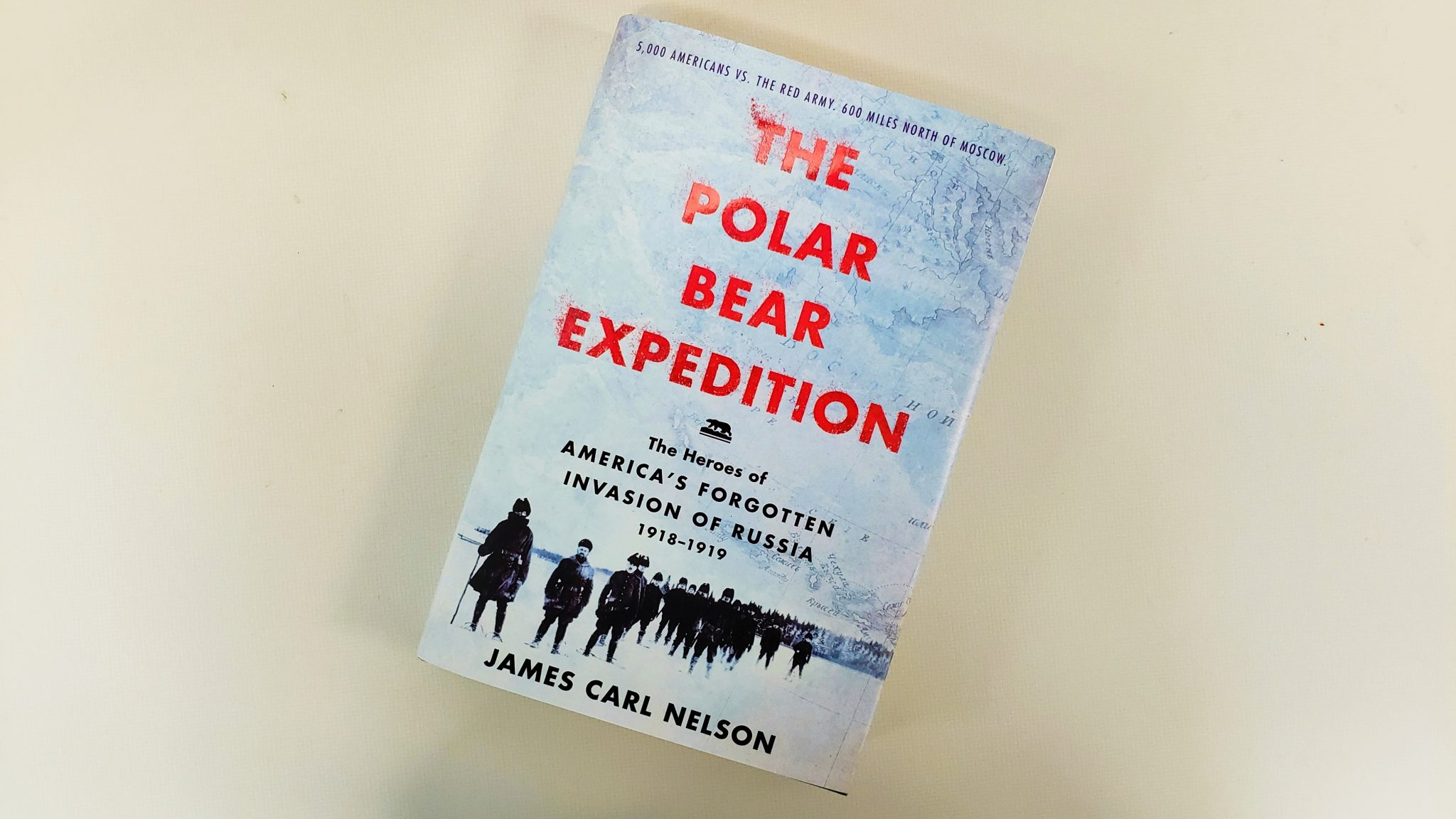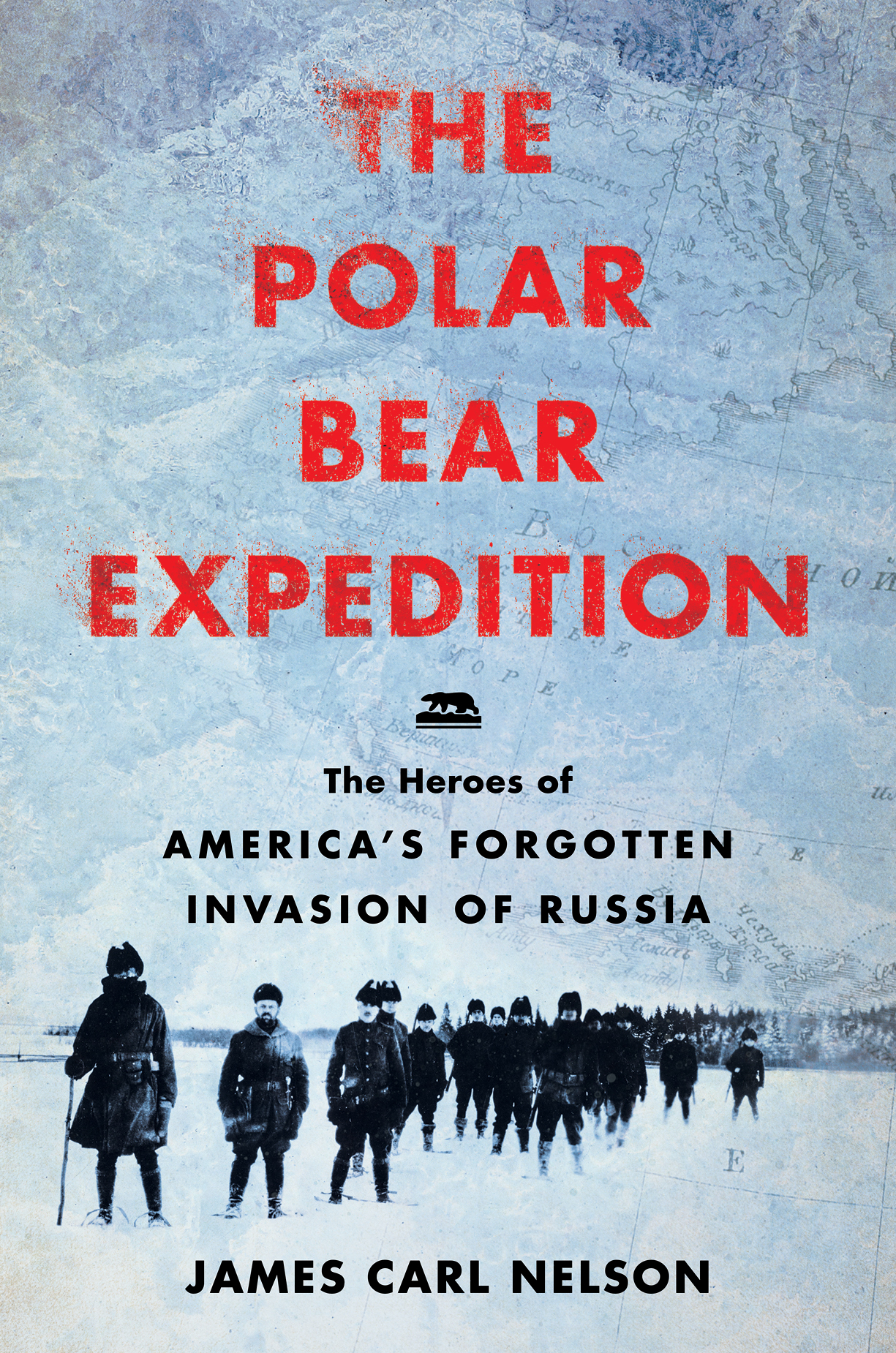The Polar Bear Expedition: The Heroes of America’s Forgotten Invasion of Russia, 1918-1919 [AUDIO, TRANSCRIPT]
How does the United States’ 1918 invasion of the former Soviet Union fit into U.S. Russian relations today?

WDET recently aired a story about the Michigan Polar Bears — a group of soldiers who trained in Battle Creek and fought World War I in northern Russia for almost a year after the November 1918 armistice officially ended the war..
Now there’s a new book on the subject — The Polar Bear Expedition: The Heroes of America’s Forgotten Invasion of Russia, 1918 to 1919 by author James Carl Nelson. He speaks with WDET’s Alex McLenon about his latest non-fiction, and the conflict’s lasting impact on U.S. Russian relations.
Click HERE to check out the Tale of the Michigan Polar Bears, and see the full transcript from Nelson’s interview below.

McLenon: A lot of research goes into writing about history. And I know first-hand that this topic of the Polar Bears — there isn’t a whole lot of information available for. So I’m curious about how you went about doing research for this book and where you curated information from?
Nelson: You know, I pretty much have learned to use every resource available. I mean, the number one resource for this book is the Bentley Historical Library in Ann Arbor. They’ve got a whole section dedicated to the Polar Bears’ memoirs, diaries, letters, photographs. Secondly, there were three books that were written by different parties when they came home. Harry Costello’s Why Did We Go To Russia?, Joel Moore and Harry Mead’s, and then John Cudahy. Harry (Costello) and John’s books were kind of diatribes. They were bitter about the whole thing, where as Joel Moore and Harry Mead’s was more of a kaleidoscope of the experience. If you read it, it’s sort of all over the place but it’s all there. A lot of it is there.
McLenon: And talking about that book being a bit of a kaleidoscope. In this book, the events are chronological, but there’s so many events happening with different characters at different locations. It almost kind of seems like it plays out in vignette form a little bit? If that’s fair way to put it. Can you tell me about making that stylistic choice and how you balance all those events and characters in different locations?
Nelson: Yeah, I think ultimately you’re right. I mean there was a 400 mile front. There was the river fronts — the Dvina and the Vaga to the south east of Archangel. There was the railway front directly south. And then the Onega River valley front, which is kind of the western border, western flank of the operation. So basically what I did, I have a very linear mind and as I researched I came to know their experience. I kind of laid it out as much as I could chronologically.
McLenon: It’s kind of like a board game then, where it seems really complicated to look but when it’s in your head…
Nelson: Yeah, I mean I tried not to jump around too much but I had to, to tell the story. I mean there was also the Pinega front. So anyways, my conception was to lay it out chronologically. That’s the best way I know how to tell a story.

McLenon: If there’ s one thing that you hope people take away from this book, what do you hope it is?
Nelson: Well, really it’s the subtitle of the book. The heroes of America’s forgotten invasion. What these men went through — they fought in temperatures of 60, 70 below. They put these men in isolated companies — 250 men guarding a front of a hundred miles and hordes of Bolsheviks gathering through the winter of 1918-1919. I think really the story is their heroism, their bravery, their endurance. And then in the end, they went back and got as many of their comrades bodies out as they could. They brought about a hundred with them when they left in June 1919. And they went back in 1929, a contingent of them,and spent months and months locating and digging up the bodies of their fallen comrades and bringing them back to the United States.
McLenon: What makes this story particularly interesting and relevant to me, is that this was also the first conflict between the United States and the Soviet Union — a relationship that I think it would be fair to say, as it plays out today with modern Russia, has maybe never really been resolved. How do you see the Polar Bear expedition fitting into that picture of U.S.-Russian relations? Or does it play a role?
Nelson: Yeah, I tell people I don’t think I can really draw a straight line from 100 years ago, when these men were fighting and dying in the wastes of northern Russia, to allegations of Russian collusion. But, I have talked to some experts asking them, you know, is there a direct line? And they say, you know, in the subconscious, it’s nothing else. I mean the Russians are taught about this intervention, and really American students are not. So when the troops left, the Bolsheviks were able to use this invasion, this intervention, for propaganda purposes to coalesce support and say, “Hey look, we drove out the invaders.” So, it’s much more a part of their history. And in the average Russian mind, these allegations of collusion, of interference — number one, the people I talk to say the average Russian thinks they’re overblown and not that important. And the second part of that is that if it did happen, maybe turnabout was fair play. You know, we interceded in their politics, and so why can’t they do that to us?

